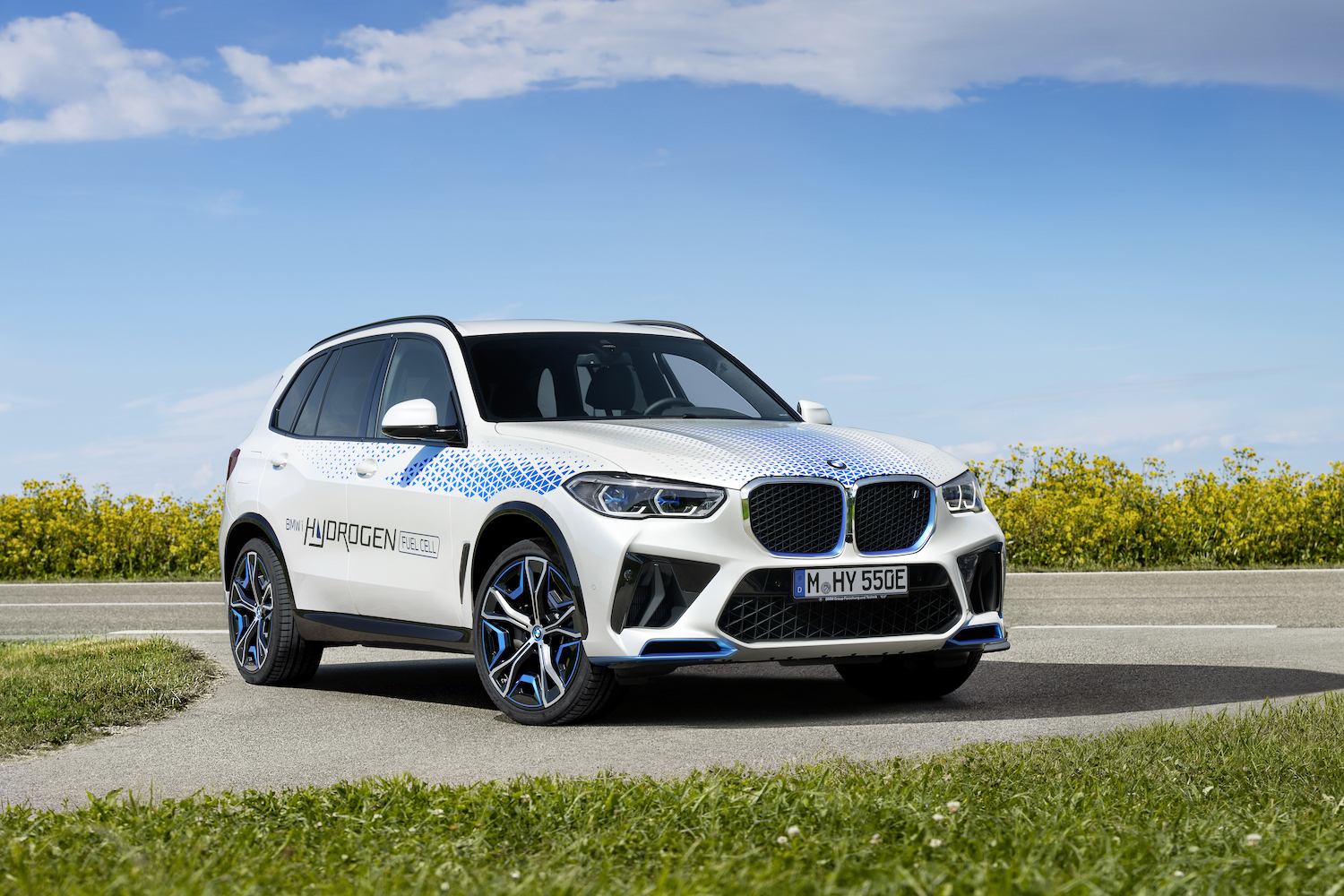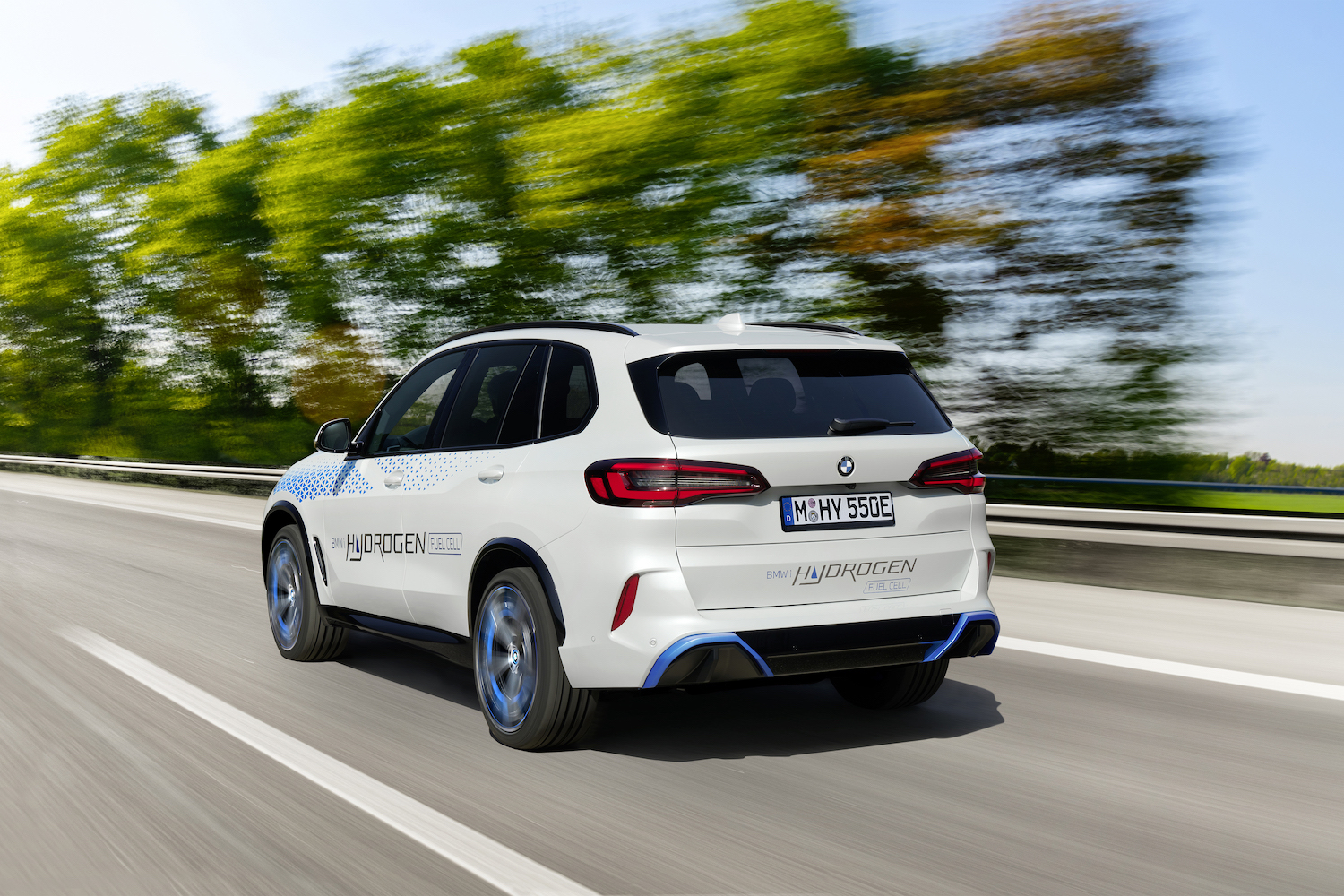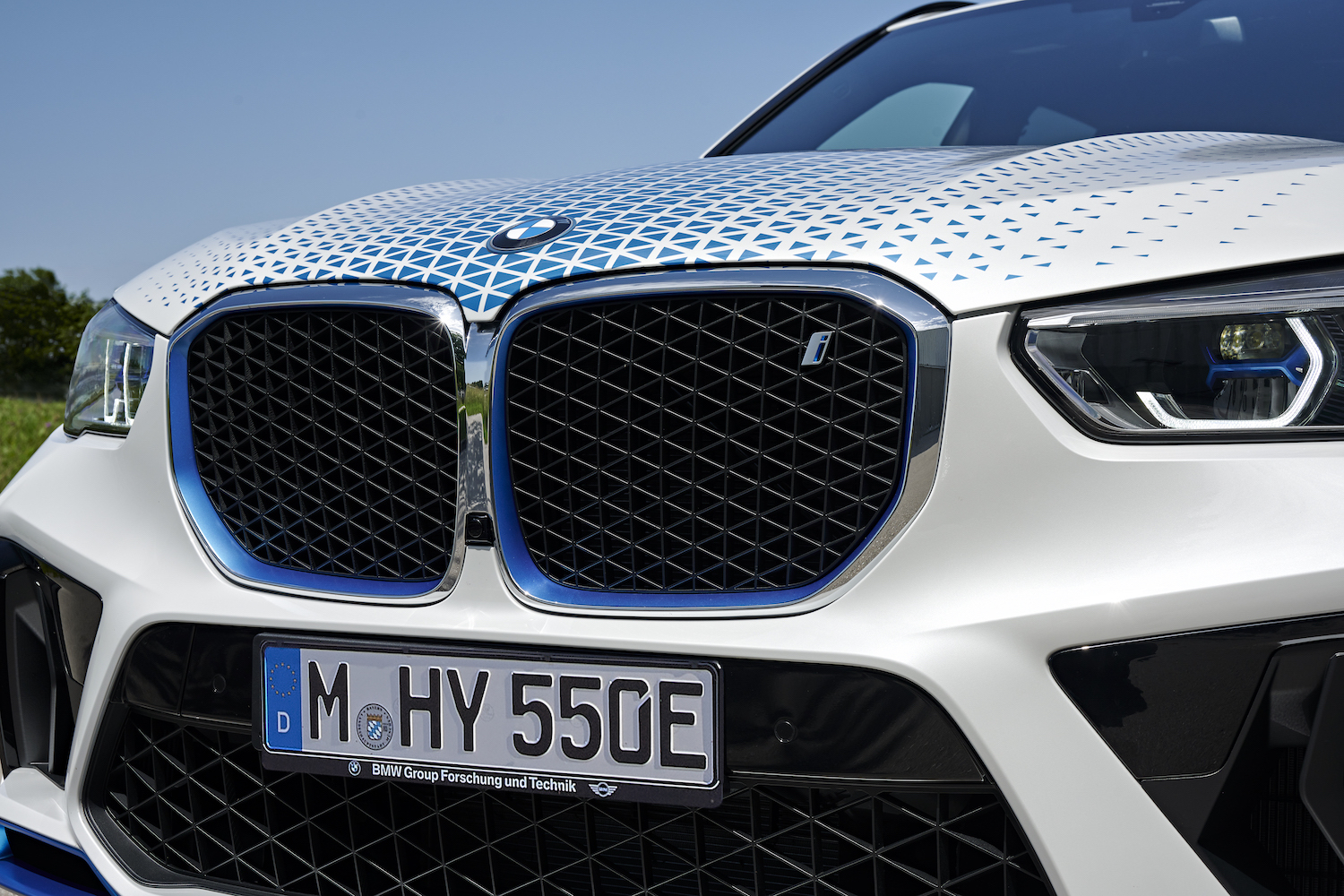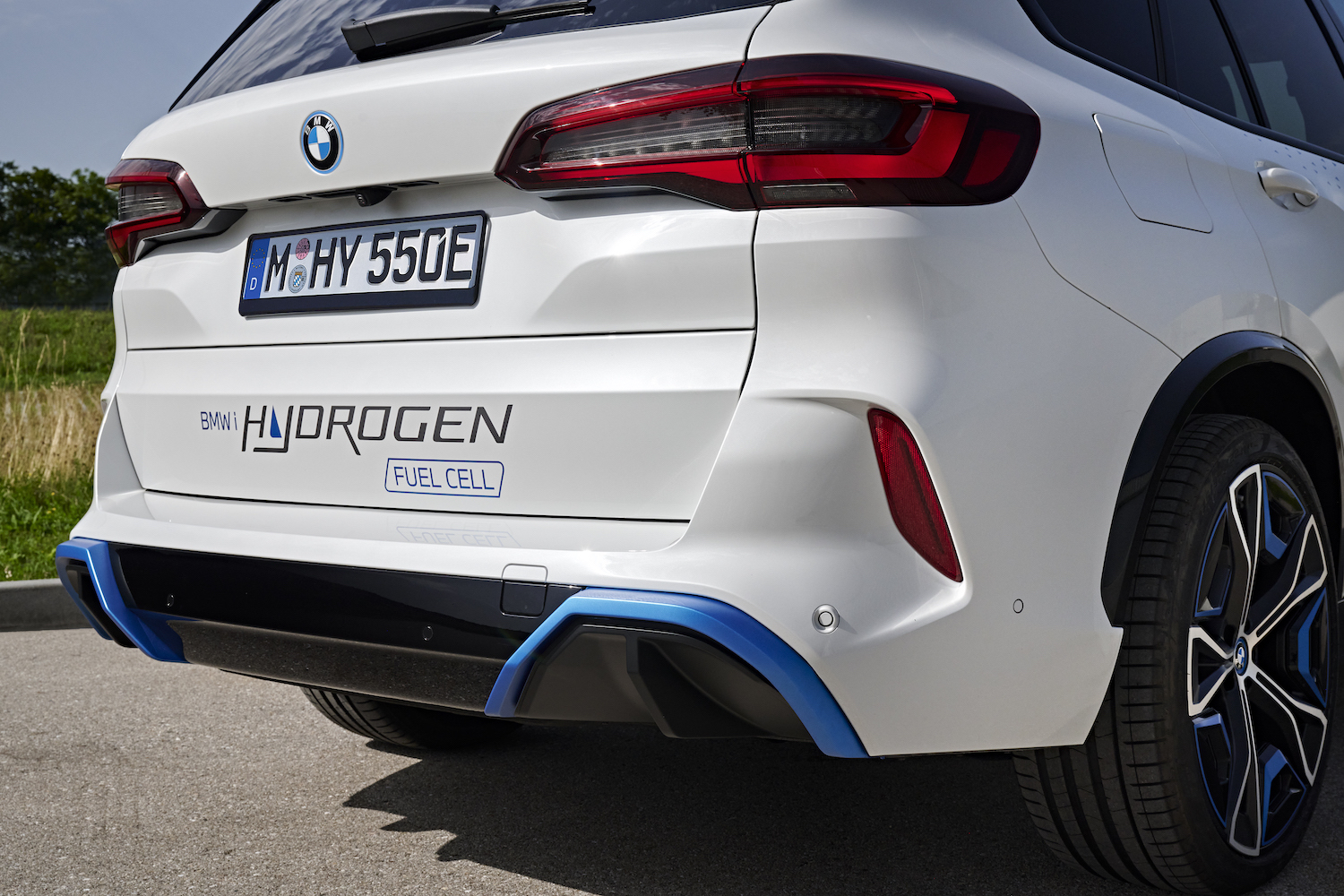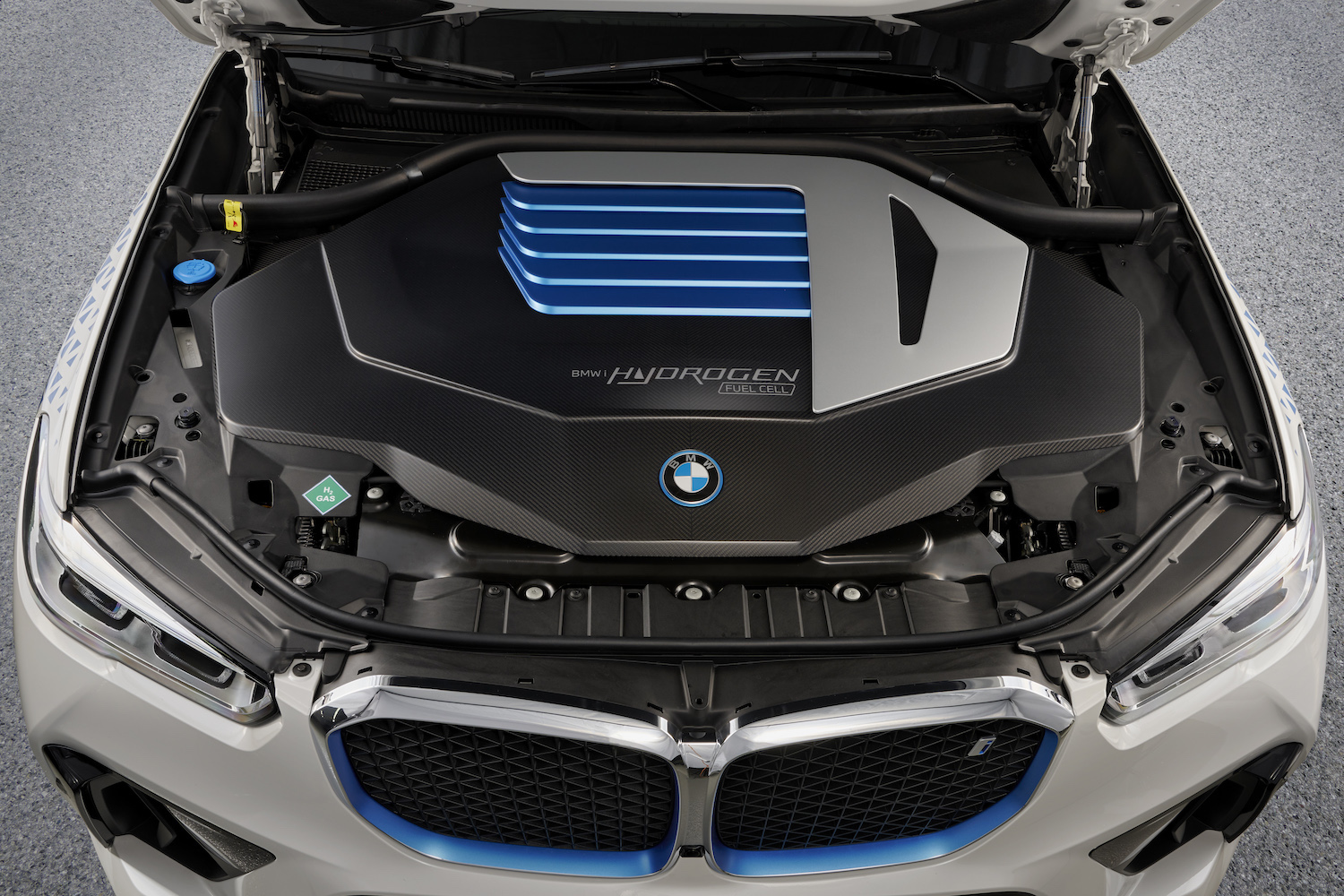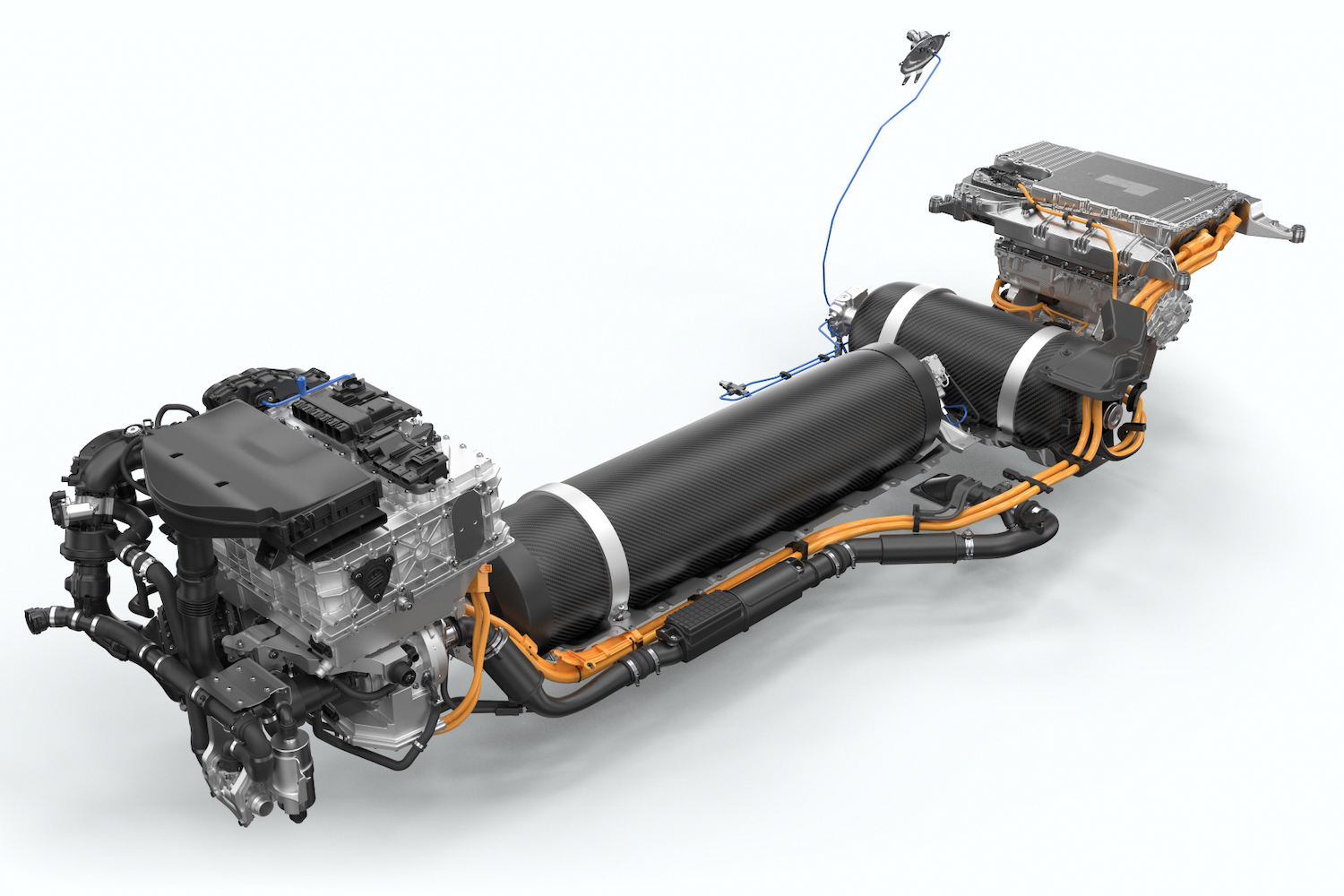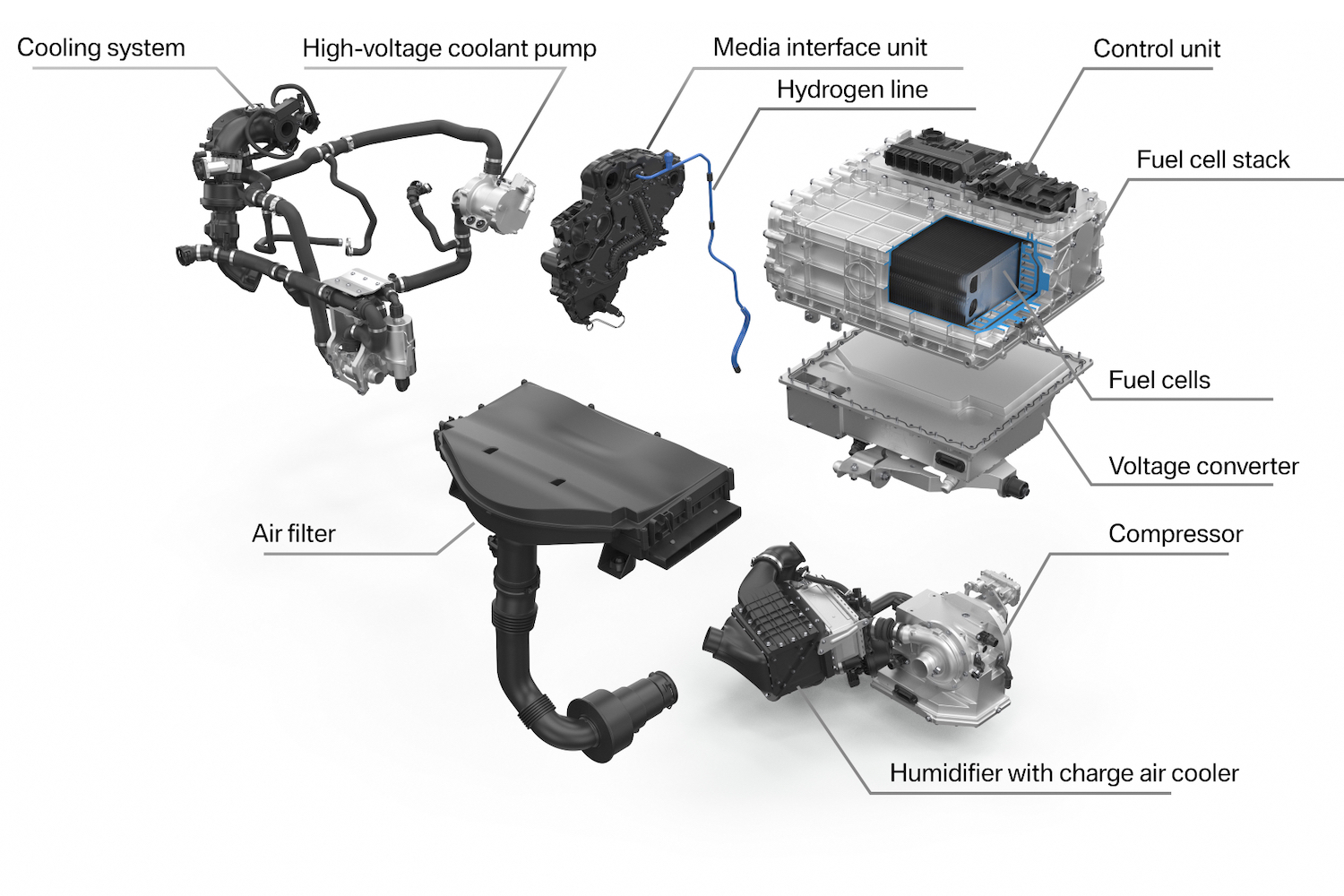Hydrogen-powered vehicles aren’t that popular in the U.S. Buyers only have two new options to choose from with the Toyota Mirai and Hyundai Nexo, and they’re only sold in California. While the majority of automakers have latched onto all-electric vehicles, hydrogen seems to be the way forward as the cleaner of the two alternative fuels. BMW believes now is the time to explore the world of hydrogen-powered cars, as it’s starting to produce a new iX5 Hydrogen SUV.
BMW claims that the upcoming iX5 Hydrogen is a “small-series” vehicle, which we’re taking to mean it is a limited model. The SUV will be available as a “technology demonstrator for locally carbon-free mobility” in a few regions starting next spring. Seeing BMW come out with a new hydrogen-powered SUV may confuse some people, but the German brand believes that hydrogen will become crucial for it to meet its emissions goals and commitment to the Paris Climate Agreement.
“Hydrogen is a versatile energy source that has a key role to play as we progress towards climate neutrality,” said Frank Weber Member of the Board of Management of BMW AG, Development. “We are certain that hydrogen is set to gain significantly in importance for individual mobility and therefore consider a mixture of battery and fuel cell electric drive systems to be a sensible approach in the long term.”
Unlike pure electric vehicles, hydrogen-powered cars, don’t require lithium, cobalt, or nickel, claims Weber. This makes them far friendlier to the planet to produce since they don’t need a massive battery pack with loads of materials that need to be mined, and it allows BMW to stick to building vehicles on its own more. Plus, fuel cell vehicles only emit water vapor.
BMW will be building the iX5 Hydrogen at a plant at its Munich Research and Innovation Center. The SUV features a hydrogen fuel-cell system with an electric battery and an electric motor that make a combined output of 374 horsepower, which is routed through the rear wheels. This makes the iX5 Hydrogen nearly as powerful as the X5 xDrive45e PHEV SUV, which has 389 horsepower. Fun fact: the fuel cells in the SUV are from Toyota, who has been co-developing fuel cells with BMW.
With BMW set only to produce a very small number of iX5 Hydrogen SUVs, these SUVs are more like test vehicles for the brand. But they’ll represent BMW’s most serious hydrogen-powered test vehicles since the 7-Series from the 2000s and the 5-Series GT Hydrogen from 2015. Depending on how the tests go, we could see a production model on sale, though the chances of it coming to the U.S. are slim.
According to data from the U.S. Department of Energy, there are 53 hydrogen charging stations in California and one in Hawaii – that’s it. It’s far more likely that BMW will offer the iX5 Hydrogen as a Europe-only vehicle, as the continent has 375,000 hydrogen chargers as of 2021.
